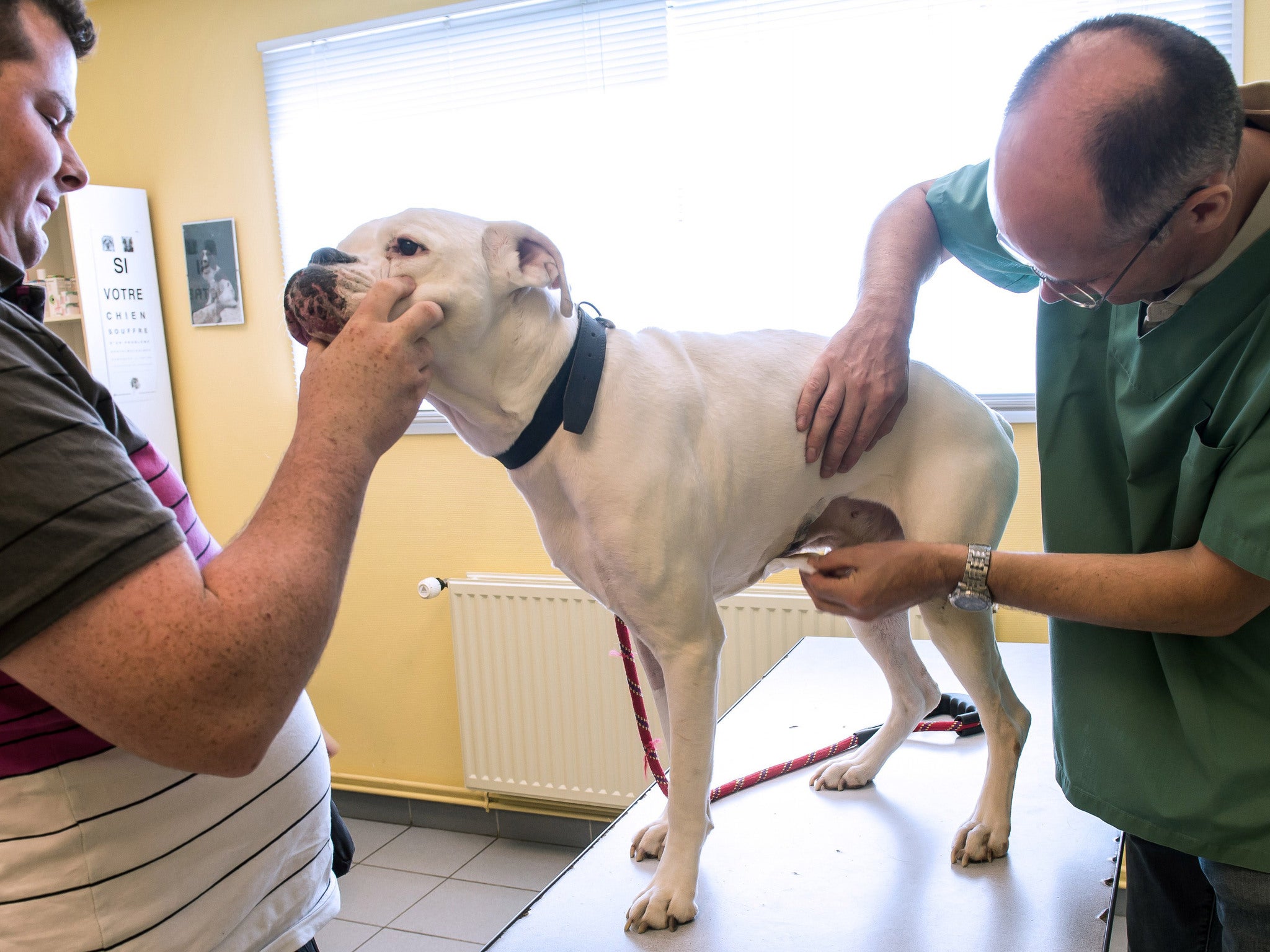Alabama rot: Dog owners put on alert over flesh-eating disease
Disease is fatal to nearly all dogs that contract it

Vets have issued a fresh warning to dog owners over the danger of Alabama rot, a dangerous disease affecting dogs that can cause ulcer-like sores on the skin and even kidney failure.
The disease was first identified in the USA in the 1980s, where it affected greyhounds. The disease first surfaced in the UK at the end of 2012, and has affected dogs of all breeds, ages and sizes.
Alabama rot has killed at least 30 dogs in England since it arrived in the country. 46 cases have been confirmed since December 2013, and vets still don't know what causes the disease.
Vets4Pets have released an interactive guide for dog owners in an effort to stop infections, which includes information on known locations where the disease has struck, and tips to stop dogs becoming infected.
Within 2-7 days of contracting the disease, fatal kidney failure can occur. Some dogs have recovered from the disease through intensive veterinary care, but most have not survived.
All confirmed cases of Alabama Rot so far have been limited to England, mostly in the New Forest region of Hampshire - but vets fear that the disease could spread further into other parts of the country.
Although there has been a 460 per cent rise in cases since December 2013 when compared to the period between November 2012 and November 2013, vets were keen to stress that the disease is still very uncommon, and advised dog owners to stay vigilant.
Join our commenting forum
Join thought-provoking conversations, follow other Independent readers and see their replies
Comments
Bookmark popover
Removed from bookmarks